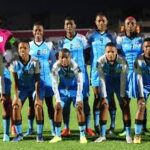South Africa’s Government of National Unity (GNU) is marking its first anniversary under a cloud of tension, mistrust, and political turbulence. Formed after the 2024 general elections, the GNU brought together the long-dominant African National Congress (ANC) and its ideological rival, the Democratic Alliance (DA), in an uneasy coalition. The partnership emerged as a pragmatic solution to prevent a feared alliance between the ANC and more radical parties like the Economic Freedom Fighters (EFF) and uMkhonto weSizwe (MK), both led by former ANC officials. But instead of unity, the GNU is increasingly defined by public disputes, political posturing, and unresolved ideological rifts.
The ANC, led by President Cyril Ramaphosa, lost its parliamentary majority in 2024, prompting a coalition deal with the pro-business DA, headed by John Steenhuisen. While this alliance initially calmed market jitters and earned praise from the business community, it has failed to translate into political harmony. Instead, it has exposed sharp divisions on key issues such as land reform, budget policy, corruption, and governance style.
Tensions escalated recently with the sacking of Andrew Whitfield, a DA deputy minister, who was dismissed after taking an unauthorized trip to the United States to lobby for the renewal of the African Growth and Opportunity Act (AGOA), a trade program vital to South Africa’s economy. The move sparked fury within the DA, which accused Ramaphosa of acting unilaterally and failing to consult coalition partners on critical matters, including controversial legislation like the Expropriation Bill, which allows for land seizure without compensation a policy that has alarmed foreign investors and South Africa’s global trade partners.
Steenhuisen’s public criticism of the president also included complaints about unresolved corruption cases involving ANC ministers, and the DA’s refusal to support departmental budgets managed by individuals it deems unethical. He cited the example of Higher Education Minister Nobuhle Nkabane, accused of misrepresentation and politicized appointments. Despite DA pressure, Ramaphosa refused to dismiss her, aggravating the rift between the parties.
Observers say the GNU is caught between governance and campaigning, as both parties appear to be using their positions within the coalition to prepare for the 2026 local government elections. Political analyst Sandile Swana described the GNU as a “marketing platform” rather than a functional government, accusing the ANC of suffering from an “inferiority complex” and relying too heavily on the DA for credibility with big business and international partners.
While Steenhuisen emphasized that the DA is not immediately withdrawing from the GNU, he warned that a motion of no confidence in the president is on the table. This has created uncertainty and disrupted state affairs. Ramaphosa even cancelled a planned trip to Spain in response to the DA’s internal deliberations.
The lack of structured communication within the GNU has also become a serious concern. According to Steenhuisen, no mechanisms exist to manage internal conflicts or foster regular dialogue among the coalition’s ten participating parties. He criticized Ramaphosa for failing to organize a leadership retreat or dispute resolution framework, warning that the coalition could collapse under the weight of its unresolved grievances and growing mutual distrust.
As frustrations mount, both the ANC and DA are navigating a delicate balancing act: avoiding a breakup that could alienate voters, while battling for influence within a coalition that increasingly resembles a political battlefield. The question remains whether South Africa’s two largest parties can set aside their differences to govern effectively or if their unhappy union will eventually fracture under pressure, leaving voters caught in the middle.













Leave a comment